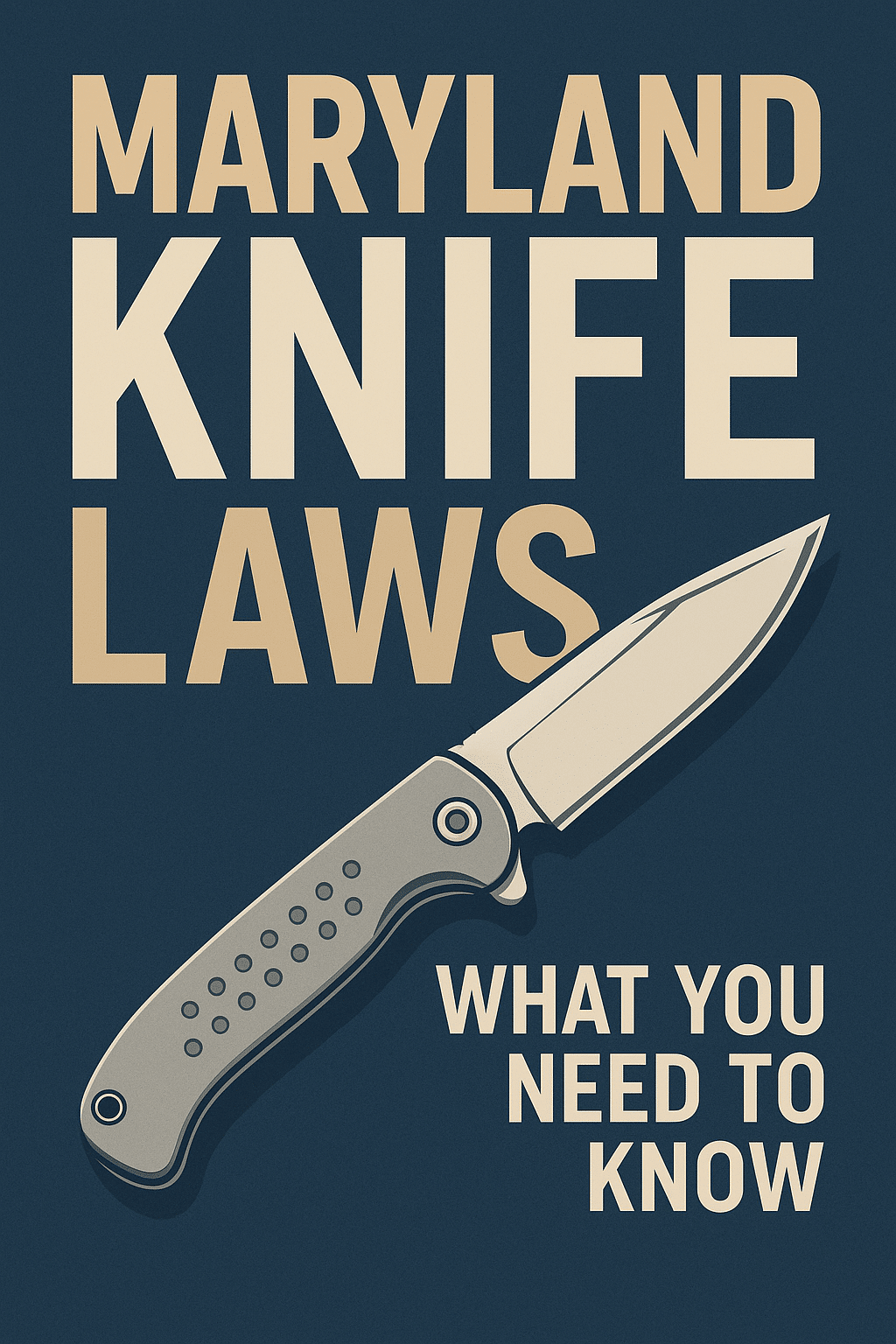
Whether you carry a pocketknife for work, keep a hunting blade in your vehicle, or simply want to know your rights, understanding Maryland knife laws is essential. Knife-related offenses can lead to serious criminal charges—even if you had no intent to use the blade unlawfully. Here’s a breakdown of what’s legal, what’s not, and how the law applies in Southern Maryland, including Prince George’s, Charles, Calvert, and St. Mary’s Counties.
Is it Legal to Carry a Knife in Maryland?
Generally, Maryland law does not prohibit the mere possession of a knife. However, the legality depends on:
- Type of knife
- How it’s carried (openly or concealed)
- Intent of the person carrying it
- Location (schools and government buildings have stricter rules)
Legal to Own or Carry (In Most Cases):
- Pocketknives
- Folding knives
- Utility knives
- Hunting knives
Prohibited or Restricted:
- Switchblades / Automatic knives: Illegal to wear, carry, or transport under Criminal Law § 4-101
- Gravity knives
- Bowie knives
- Star knives or throwing stars
It is also a crime to conceal a dangerous weapon (which may include certain knives), especially if there is intent to injure someone.
Concealed Carry vs. Open Carry
Maryland does not have specific laws using the term “concealed carry” for knives, but Criminal Law § 4-101 makes it illegal to wear or carry a “dangerous weapon” concealed or openly with the intent to harm.
The term “dangerous weapon” is interpreted by courts and can include:
- A switchblade
- A large fixed-blade knife
- A knife used or intended to be used in a threatening manner
Knives in Schools
Under Criminal Law § 4-102, it is illegal to carry any type of weapon—including knives—on school property, with very limited exceptions (like official school use or written permission). This applies to:
- Public and private schools
- School buses
- Playgrounds attached to school buildings
Violating this law is a misdemeanor punishable by up to 3 years in prison and a $1,000 fine.
Knives and Minors
There is no specific statewide prohibition on minors possessing knives, but local ordinances may apply. For example:
- Some Maryland counties restrict knife sales to individuals under 18
- Juveniles found with knives in school zones or during the commission of a crime may face enhanced penalties
Local Ordinances in Southern Maryland
Each county may adopt additional regulations regarding knives:
- Charles County: Generally follows state law but school zone enforcement is strict
- Prince George’s County: Has increased penalties for weapons violations in high-crime areas
- Calvert and St. Mary’s Counties: Rural areas may have fewer restrictions, but school zone and concealed weapon laws still apply
Always check local codes or speak to a criminal defense lawyer familiar with your area.
What Happens If You’re Charged?
If you’re arrested for a knife-related offense, you could face:
- Misdemeanor charges for carrying a dangerous weapon
- Felony charges if the knife is used during a violent crime
- Juvenile proceedings if under 18
The prosecution must prove intent to harm in many knife possession cases. A skilled Southern Maryland criminal defense lawyer can challenge this element and help you avoid a conviction.
Contact a Criminal Defense Lawyer in Southern Maryland
Knife laws in Maryland can be vague and heavily dependent on the circumstances. If you’ve been charged or have questions about what you can legally carry, don’t guess—get answers.
📞 Contact us for a free consultation
Let an experienced defense attorney serving Charles, Prince George’s, Calvert, and St. Mary’s Counties help protect your rights.
